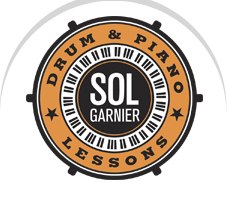Your cart is currently empty!
Professional
Following on the previous post titled “Advanced”, here is now a description of what a Professional player is.
A Professional, or a “pro”, as they are called, must be prepared for anything. Anything! It means that, for reading, he must be able to read the proverbial “fly-s***” on a piece of paper… At any tempo… with any meter… in any style.
In rudiments he should be tackling concert snare drum charts without problems , even if the meter fluctuates from 5/8 to 9/4. He should also have a great collection of rudiments applied to the drum set, be it, for example, playing the flam tap as a groove or the famous ratamacue on the toms as a fill (Steve Gadd). Still in rudiments, he should be able to play some of them on his feet and incorporate them in the general orchestration of his drumming.
Now, let’s talk about style. He should not only be fluent in any style, but also know extensively how to play a waltz, a calypso, a polka, a mambo, a cha-cha, etc. In one word he should be familiar with the unfamiliar. And not only the style but the mind set that accompanies each style, as you do not put the same ingredients in be-bop as you put in commercial reggae. To push it even further, he should have developed a style of his own that he can imprint on anything he plays, meaning he has built a vocabulary of grooves, fills, orchestration, dynamics, etc, that belongs only to him. Again, for reference, Steve Gadd is the player that demonstrate brilliantly what I am talking about.
A pro has to know all of the musical concepts and invented a few more that he’s ready to spring at any time when the situation calls for it. He has to be bold, but not intrusive, he has to be versatile, but not restrained. For example, if he studied the concept of dynamics, he has dug into the subject to the point that he’s able to play different volumes on one limb while the others stays constant. If he has studied song form, he might also have developed a knack to illustrate lyrics that will enhance the tune and push it over the cliff.
A pro has to have a great attitude and do what it takes to earn some money. This one is not on the radar of the advanced player. Because the pro needs to make a living at his craft, he will go where he knows he is needed. It could be a big city, or trying to land a gig with a famous name, or network regularly and try to get out there.
A pro has to know how the latest technology impacts his playing, whether it’d be playing to a loop or doing a recording in a home studio, or whether he has to improvise a part on a pair of bongos or set up his kit under 10 minutes.
There are many other components to a professional, but these are some important ones.
